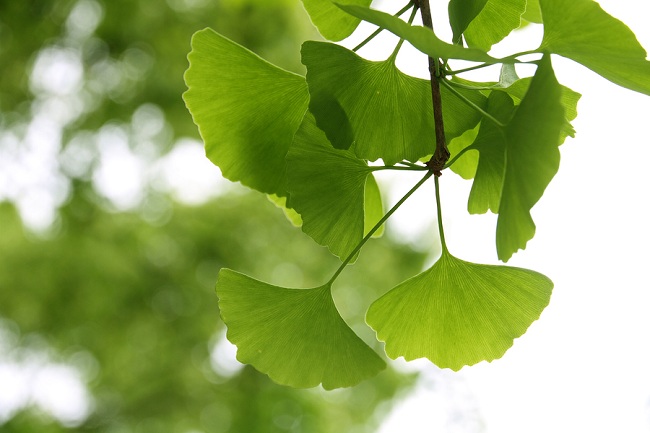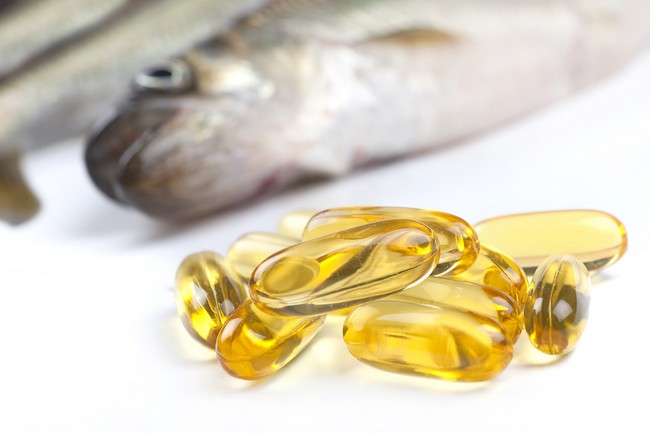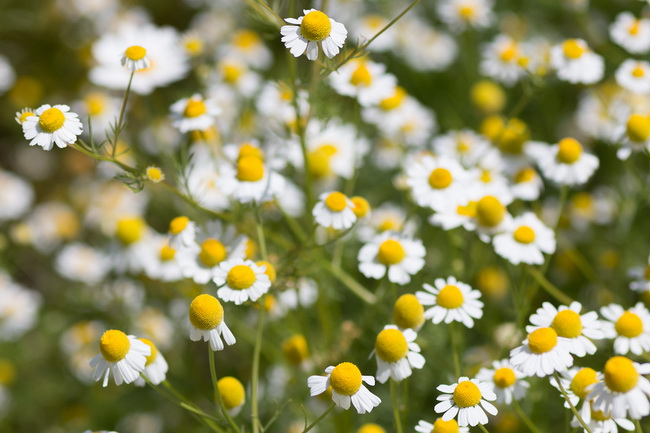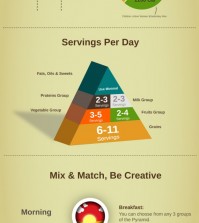- Make It Yourself Lavender Heart-Shaped Bath Bombs!
- 20 Things You Never Knew About “Down There”
- 12 Best Foods For Those Suffering From Arthritis Pain
- 12 Personal Hygiene Mistakes Almost Everyone Makes (Mom Never Told You About #4!)
- 15 Medicinal Plants And Herbs From The Cherokee People
- 12 Mind-Blowing Benefits Of Drinking Coconut Water During Pregnancy
- 12 Outstanding Winter Foods That Won’t Fatten You Up Like A Christmas Turkey
12 Ways To Treat ADHD Without Drugs (#8 Is Quite Different)

Photo credit: bigstock.com
Attention Deficit Hyperactivity Disorder, or ADHD, is a problem that affects millions of children as well as adults. This developmental neuropsychiatric disorder is one of the most common disorders among children, occurring more often in males than females.
Some of the key behaviors of a person who suffers from ADHD are inattention, impulsivity, and hyperactivity. Persons with this disorder often have difficulty paying attention, difficulty following instructions, problems with organization, and becoming bored quite quickly. They can also become easily distracted, forget things quickly, and occasionally talk or laugh excessively. Although many children outgrow this disorder as they age, some people never completely outgrow the problem.
Although the exact cause of this disorder is not fully understood, there are certain factors that are known to contribute, at least in part, to its development. Some of the biggest factors involved are central nervous system problems, genetics, and environmental factors. Some researchers also believe that exposure to environmental toxins, maternal drug use, alcohol consumption, or smoking during pregnancy can also be factors.
A proper diagnosis is also important before trying any type of treatment or herbal program.
Most doctors will quickly try to push prescription drugs on your child, but that should really be a last resort. There are numerous other ways you can deal with ADHD that do not involve toxic drugs. We have a list of the top 12 ways to deal with ADHD naturally.
1. Technology Time Outs
In today’s world, most kids are perpetually plugged in, texting, watching videos on their phones or tablets, playing computer games, and watching television for hours. This constant stimulation not only exposes our children to EMR (electromagnetic radiation) at potentially dangerous levels, but it also fragments their attention. When you are constantly scrolling Facebook or watching two-minute videos, we are training our brains to work on that level. Sleep problems, headaches, memory and attention problems, as well as chronic fatigue are all possible side effects of EMR. Limit your child’s screen time exposure to no more than one or two hours each day.
2. Exercise
The journal Neurotoxicity Research published a study in 2012 finding that regular exercise was not only beneficial in fighting stress, feelings of anxiety, depression, negative behavior and poor impulse control, but it was also linked to improved memory and less compulsive behavior. Research suggests that exercising in green, open spaces, such as parks, improves the brain function in those with ADHD. Work to ensure that your child spends a minimum of 30 minutes a day doing some high energy exercise, especially if he can do it outdoors. Bike riding, playing soccer or basketball, swinging, playing on jungle gyms, or swimming are all excellent exercises. You might want to consider enrolling your child in activities that engage the entire body such as dancing, ice skating, martial arts, or gymnastics classes.
3. Calming Herbs
There are plenty of herbs that can naturally calm, soothe, as well as nourish the central nervous system. Some of the best herbs for this purpose are skullcap, lemon balm, chamomile, passion flower, valerian, and St. John’s Wort. These can be consumed as teas or tinctures. Speak with your doctor first for the proper dosage for your child.
Continue to Page 2

Photo credit: bigstock.com
4. Brahmi
In Ayurvedic medicine, brahmi is often used as an alternative treatment for those with ADHD. Sometimes called bacopa, this herb works as a tonic to the brain, improving word recall, memory, and lowering feelings of anxiety or depression. Brahmi stimulates cognitive function and stops damage from free radicals. You can mix one teaspoon of brahmi powder and some honey and consume this twice each day. You can also take this herb in a supplement but you should consult with your doctor, especially if this is for a child, so that you can get the proper dosage.
5. Diet And Nutrition
As you might already be aware of, diet plays an important part when it comes to managing the symptoms of ADHD. You can improve memory, obtain a longer attention span, and sharpen the reflexes by making some simple changes in diet.
Focus on getting your child to consume high protein foods such as fish, beans, eggs, nuts, and dairy products. Foods high in protein stimulate the body to produce dopamine, which not only fights depression, but helps us to maintain focus.
Also, start your child eating more complex carbs that are high in fiber and low in sugar. Include some magnesium rich foods such as spinach, and sunflower seeds.
Eliminate all foods with artificial sweeteners, artificial colors, artificial flavors, and/or preservatives. All of these ingredients cause hyperactive behavior.
6. Ginkgo Biloba
This popular herb is also a great option for ADHD. It will improve memory, cognitive function, retention, perception, and focus. The Journal of Psychiatry and Neuroscience published a 2001 study showing that subjects who had been diagnosed with ADHD showed improvement in hyperactivity and social behavior when they consumed a combination of American Ginseng, Asian ginseng, and gingko biloba. This herb can interfere with certain prescription medications, so please consult your doctor for proper dosage. You should also consult your pediatrician before you allow your child to consume this herb.
Continue to Page 3

Photo credit: bigstock.com
7. Fish Oil
Fish oil has been found to be very successful in curbing the symptoms of ADHD in both children and adults. Researchers believe that a lack of a certain type of polyunsaturated fatty acids might contribute to psychiatric disorders such as dyslexia and ADHD. Choose a fish oil supplement that has a high ratio of omega-3 fatty acids to omega-6 fatty acids. Fish oil supplements have been shown in many studies to improve concentration levels and memory. Eat at least 3 servings a week of cold water fish such as trout, salmon, and sardines. You should consult with your doctor before you or your child consumes a fish oil supplement for proper dosing information.
8. Yoga And Tai Chi
Yoga and tai chi have also been shown to benefit those with ADHD. The physical postures, breathing exercises, and relaxation techniques that are practiced in yoga help to strengthen, yet calm, the central nervous system. Yoga is very beneficial for children as it helps them not only learn how to control and relax their bodies, but they learn discipline, which can help them to learn to manage their own ADHD symptoms naturally.
The Journal of Bodywork and Movement Therapies published a study finding that children who attended tai chi classes twice a week had far fewer feelings of anxiety, improved conduct, fewer inappropriate emotions, less daydreaming, and much less hyperactivity. Of course, for this to be successful, your child must be interested in these activities. Forcing them to do these exercises will be a waste of time if they do not enjoy them; however, many children find yoga and tai chi to be fun, especially if they do them along with an enthusiastic parent.
9. Korean Red Ginseng
Korean red ginseng is often used in alternative medicine as a memory enhancer. This memory boosting power can often help those with ADHD. The Journal of Ginseng Research published an observational study from 2011 which found that the consumption of Korean red ginseng improved the attention span of those diagnosed with ADHD. This herb is best consumed in cycles. For the correct dosage, consult with your doctor.
Continue to Page 4

Photo credit: bigstock.com
10. Massage
Although massage is relaxing for everyone, those with ADHD seem to benefit from it more than most. Regular massage can increase serotonin levels, which helps to modulate the elevated levels of dopamine that often occur in those with ADHD. One study, published in 2003 in the journal Adolescence, found that 20 minutes of massage therapy twice each week had a very positive impact on both behavior and moods. You can massage your child yourself, or see a professional massage therapist. Ask your doctor for a recommendation.
11. Green Oats
Green oats, also called wild oats or avena sativa, are another effective herbal treatment. Green oats have a sedative effect on the central nervous system and work as a brain tonic. Research studies have shown that green oats can also improve concentration levels and lengthen attention spans. Green oats are usually consumed as an extract, so speak with your doctor or a herbologist for the proper dosage.
SEE ALSO: All Natural Cold and Flu Remedies for Kids
12. Chamomile
One of the most commonly used herbs for ADHD; chamomile has calming, soothing compounds that can reduce hyperactivity by regulating the mood. Drink two cups of chamomile tea each day for best results. Although chamomile is very mild and considered to be suitable for children, speak with your doctor to be certain that this herb is safe for your child.
Extra Tips:
- Teach your child how to keep their environment organized and uncluttered
- Make sure that your child gets plenty of sleep and time to rest as being overly tired can make ADHD worse
- Keep as regular a schedule as possible
- Always remain patient and calm, even when your child is out of control
- Use easy to understand words and demonstrate how to do things to be sure your child understands what you want
- Always reward your child for doing well
References:

































